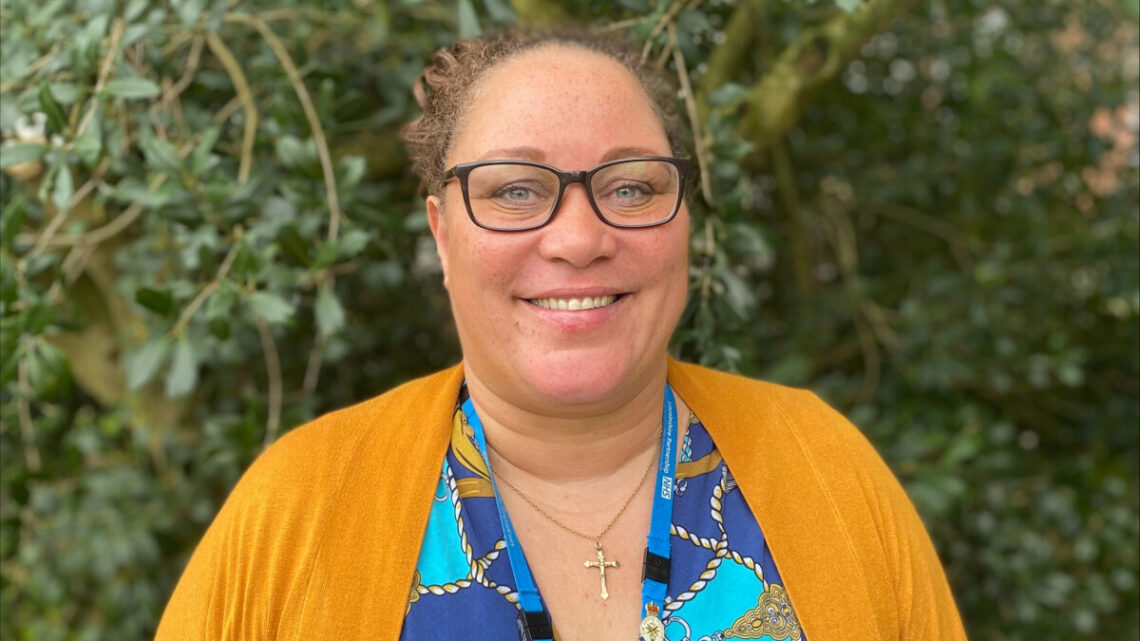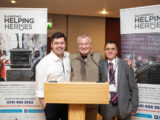
Civvy Life – Back to strength
Adele Robins explains how she came from facing mental health issues herself, to helping others who are dealing with similar challenges.
What’s your Military background?
I joined in 1991 and stayed in until 2014, so I did my full Service. I Served in the UK and in Germany with 7th Signal Regiment, 1st Armoured Division, 20th Armoured Brigade, 21 Signal Regiment, 101 Log Brigade and JACIG.
I Served in Bosnia in 1996 and also did three tours of Iraq. The first tour was the hardest as that was when the Gulf War started and they deployed me when my son was just nine months old which was very difficult.
How was resettlement?
I retired from the Services, basically. I actually had a mental health breakdown and I was under mental health services at RAF Cranwell while Serving. They were pivotal in my recovery, shall we say, and to getting me to a better place again. That’s when I decided to actually go into mental health myself.
Does some of what you went through inform how you treat service users?
I bring a lot of my experience and what I went through into the way that I talk with them. I find that because I went through a breakdown myself, I can empathise more with service users, because I understand what they’re going through.
Did you use any of the resettlement resources from CTP?
I didn’t actually do resettlement while I was in the Army. I went along for a resettlement briefing but I told my OC that I wasn’t going to do a resettlement package because I knew what I wanted to do. I wanted to go to college, I wanted to get qualifications so that I could go to university and that was all mapped out for me, by myself.
How did you come to work with the Lincolnshire Partnership NHS Foundation Trust?
I studied for an undergraduate degree in social work at the University of Lincoln. So, I retired in the July and went to Lincoln College in the September for a year. I’d joined the Army when I was young and I didn’t have A-levels, so I did an access course for university and from there, I went on to university.
I’d wanted to go into adult mental health and I knew that would be with the NHS. They were advertising and I just went for it.
What’s your current role with the Trust?
I’m an adult mental health social worker, supporting service users between the ages of 18 and 64 that are experiencing low mood, or have got a diagnosis of a mental health condition, autism, or dementia.
Lincolnshire Partnership NHS Foundation Trust has a good relationship with Veterans. What is it that they value so much in them?
They know what they’ll get. You’re very disciplined when you’re in the Military. You’re very task focused. You get things done. That’s the way the Military works. I know when I had my interview, the person that was interviewing me said, we want you, because you’re bringing a wealth of experience through your Military background. That’s what the Trust looks for in people.
Interestingly, you could have been describing a person working in the NHS; the profile is so similar. What Military skills and attributes do you find yourself using?
It definitely is similar. I’m very driven. And that was instilled into me through training in the Military. When you’re given a task in the Military, you do that before you move on to the next task. I bring that to the role I’m doing now.
Do you miss the Forces?
I absolutely miss the Forces. I really struggled when I came out. I missed the camaraderie more than anything. They’re all your brothers and sisters, it’s a great family. But the NHS is one big family too, which is great; it’s a pretty good substitute.
And what do you appreciate most in your current role?
I appreciate the fact that you’re not micromanaged. Yes, there’s a hierarchical system in the NHS but for example, in my job, you manage your own diary which is fantastic. So, there’s that element of being able to manage on your own.
You’ve been very honest about your challenges. Some people might be surprised that you’re putting yourself back on that particular battlefield, so to speak…
It is difficult at times. Some service users bring things back to me and I do have to reflect on that. But I talk about it with my manager. She knows a lot of my history and it’s quite nice to just take that time to reflect on what’s been said and how it affects you because obviously, we have to look after our mental wellbeing first. Otherwise, we’re absolutely no good to our service users.




